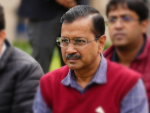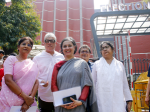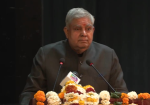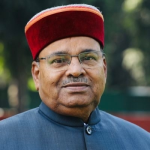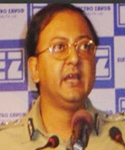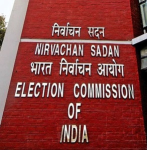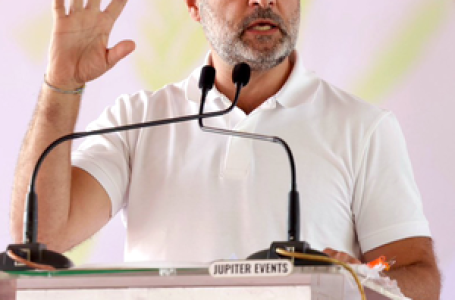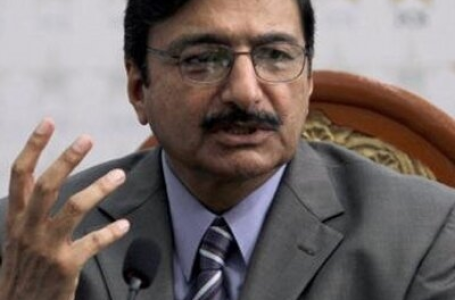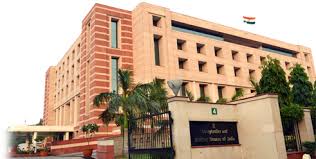
June 2, 2019
New Delhi: Former Cabinet Secretary B.K. Chaturvedi has slammed the Comptroller and Auditor General (CAG) for its reports on 2G spectrum allocation and coal block allotments, saying the auditing body had sought to “usurp” the government role of policy making and tried to enter the domain of policy making, which is not its remit.
Referring to the report on 2G, he said, “It almost appeared as if the CAG wanted to exaggerate the figure of loss, treating the public as his audience rather than the PAC (Public Accounts Committee of Parliament) when he used the figure of 3G auctions held in 2010 to compute losses in licence given in early 2008.”
“The CAG report in the 2G case raised questions that had serious implications for governance and its approach to audit,” Chaturvedi wrote in his book ‘Challenges of Governance: An Insider’s View’.
“While the CAG was correct in pointing out the errors in the allocation of licences, he also raised the issue of presumptive loss, which was taken as loss to government revenue,” the retired IAS officer said about an issue that had created a huge political uproar during the UPA-II period and led to stalling of Parliament for weeks.
Highlighting the “wide variation” in the audit body’s calculation of the market value of loss from Rs 33,000 crore to Rs 1.76 lakh crore in the 2G spectrum allocation, the former top bureaucrat wrote, “By computing presumptive loss as loss to the government, the CAG tried to usurp the government’s role in making public policy.”
Chaturvedi, who was the Cabinet Secretary from 2004 to 2007, said, “All losses are computed based on government policy when a decision is taken. It is prerogative of all governments to price their resources. This is part of public policy. Many pricing structures are, at times, below the market price. This may be necessary to stimulate economic growth or expand reach of services.”
He said the government “clearly exercised a wise choice” by going for revenue-share and by pricing spectrum moderately, thus expanding the market rather than fixing prices at very high rates and “killing the golden telecom goose”.
“The government decided against raising the spectrum charges for new licencees. The CAG felt that this was wrong and hence computed loss to the government based on the market value of spectrum. While doing so, he did not take a broad and more comprehensive economic view of the issue in assessing the policies of the telecom sector,” said Chaturvedi, who also served as a member of the Planning Commission and 13th Finance Commission after his tenure of Cabinet Secretary ended in 2007.
“By deviating from the time-honoured principle of computing losses to the government based on difference between the pricing fixed by the government and the price actually charged, the CAG, by arriving at a sale price he thought should have been fixed, brought in uncertainty to the auditing process, as the exercise involved discovering the market value of the telecom licences given in violation of the FCFS (first come first served) policy,” he said.
The Padma Bhushan awardee of 2010 added, “Market access was changing fast and growing at the rate of about 40 per cent per annum in 2003-2010. The type of 2G services was quite different from 3G, which included data. So neither were the market conditions for 2010 comparable to that of early 2008, nor was the type of spectrum allotted, viz, 3G, comparable to the allocations made to new licences. And yet this was chosen as the estimate of loss.”
While targeting the government auditor, then headed by Vinod Rai, Chaturvedi said, “By moving into the realm of market value of telecom licences rather than sticking to the audited numbers of accounts, the CAG entered an area that needed a more comprehensive assessment than had been done before.”
He wrote that if market value were to be assigned to the new licensees, the growth of the telecom market could take a different trajectory.
“Wherever possible, the new players would try to recover the cost by focusing on value-added services instead of mere expansion. This could slow down growth and the access of common citizens to these services. The overall growth of the economy and governance benefits could be impacted.
“Thus a comparison of loss required a more comprehensive assessment, including economic impact in the two scenarios: one with the rates on which allocation was made and the other based on different market values identified and indicated by the CAG,” the former bureaucrat wrote.
“The cost-benefit comparison would then yield the implication of the decision to award the licences at the rates prevalent so far. Even this analysis, would involve a lot of assumptions. With different assumptions, the results would be different. The CAG thus entered an area that had large uncertainties,” he added.
Chaturvedi said there was also the question of equity, “which was ignored by both the CAG and the SC in its judgement.”
“All the earlier licencees had paid an entry fee and were annually paying a revenue share towards the licence fee and spectrum usage. While getting the licence, a start-up spectrum had been bundled along with it. The new licensees had to have similar terms so as to be able to provide competition, which was in the interest of consumers. But the CAG ignored this issue in his report. How the competition was going to be on a level-playing field and thus fair, was not considered at all,” he contended.
Under the section “CAG’s Blunders in the Coal Saga”, he referred to the CAG’s report in May 2012 in which the auditor criticised the government’s allocation of coal blocks to private and government companies.
The CAG computed a “huge benefit” of Rs 1.86 lakh crore to private parties who were allotted these blocks, he noted.
“However, there are serious concerns about the issues raised in the report. The CAG tried to enter the domain of policymaking, which is not the remit of the CAG but of the government,” the retired bureaucrat wrote.
He said the CAG report “ignored the way decision-making is done in governments and came from a position which was, strictly speaking, factually incorrect.”
He said many of its findings were “derived from first assuming what the government policy should have been and then computing profits to the private sector.”
“The CAG failed to realize that when captive coal allocation was permitted by the legislature in 1993, there was no computation of how much profit the captive-mine allotees could derive, beyond which they would have to surrender any extra gain to the government,” he said.
“The report also did not fully appreciate the overall economic logic of the decision made by the government in 1993 but focused on direct revenues from the coal block auction rather than on the huge overall economic benefits and revenues that would flow from it,” Chaturvedi said.
“The CAG has also erred in observing that the allocation of captive coal blocks was not transparent,” he said.
“The crux of the matter was whether in the given system, it was fair. The method used for this purpose, as in many other areas, was of an inter-ministerial committee with representation from all the concerned states. Such a method of selection is used widely in many areas, and the intention in these meetings is to consider the views of all stakeholders and then decide the best option for the sector,” he said.
He said when the committee took a view considering the overall picture, “it was acting in the best interests of the sector” and “there were practically no representations against these decisions.”
IANS




